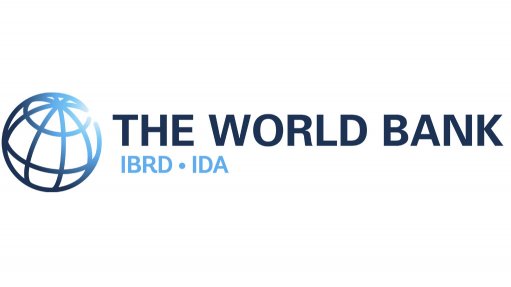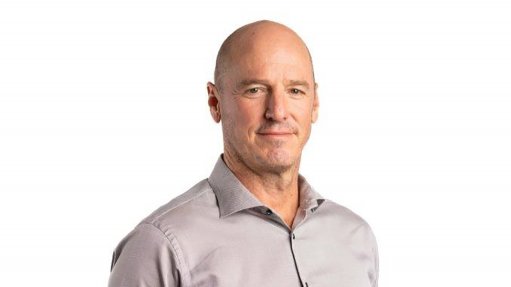“By installing a water solar heater, the electricity bill of a typical middle income household of four people, should come down by up to 50% per household.”
This article has been supplied as a media statement and is not written by Creamer Media. It may be available only for a limited time on this website.
What does the collaboration between the EE forum and African Utility Week entail?
We are going to be mutually supportive going forward. First of all, we are participating at African Utility Week and Clean Power Africa in various ways, and African Utility Week will promote and support the Energy Efficiency Forum, which is a collaboration between the City, Eskom and SAPOA (South African Property Owners Association). I have been asked to join the advisory board of African Utility Week and what is good about that is that we will see the programme as it is being developed and we can make suggestions on how we would like to participate in it. We will also be more consistently involved this way.
At the event, the City is aiming to have a stand where we will promote the City’s energy efficiency programmes, including the electricity savings campaign and solar water heater programme, particularly working with residential users, the Energy Efficiency Forum which is for commercial businesses.
I am also a panellist during the AUW programme. There will be expo tours after the technical workshops during which we will present our programmes. AUW has also offered that the winners of our Energy Efficiency Forum Awards, which were announced in November last year, will be showcased during the event. Our award winners will also automatically be entered into the AUW awards programme. We are very happy that we have this relationship so that we can collaborate where there are opportunities.
What impact will the campaign around solar water geysers have on electricity consumption?
It will have a very significant impact. If we see the number of installations that we are aiming for, we should have a 10% consumption reduction across the whole of Cape Town – that includes businesses, industries and households. It also means a lot of investment in solar water heater companies, the creation of jobs for installation teams. The City is playing a crucial role in quality control of both product and installations as this is the best way to make solar water heaters desirable (heat pumps will be added as soon as there is an SABS standard promulgated for heat pumps). We are intending that our programme will create a much more competitive environment by increasing demand – this should reduce the cost significantly. The electricity bill of a typical middle income household of four people can, on average over a year, reduce by up to 50%..
Get your solar water heater: www.savingelectricity.org.za
As electricity is a big earner for municipalities, losing income when switching to renewable energy sources could be a deterrent for them. Your opinion?
I think there are ways of managing it and what we definitely need to look at are appropriate tariff models to both support the installation of renewable energy (PV in particular), but also to protect the municipality’s income. You know, a municipality cannot be supplying a house in the City with the luxury of the availability of electricity and then the household doesn’t actually pay for it because they are mostly using renewable energies or other alternative energy sources. And then suddenly it rains for a few days and the household suddenly needs electricity and their demand goes straight onto the grid. The way in which the tariff is structured at the moment is dependent on that household needing electricity all year round. One way of dealing with it could be an availability charge to have access to the grid.
The City is proposing that the feed-in tariff would be structured so that the household or business would pay what the City would be paying Eskom at that time. It is intended that the commercial feed-in tariff will become a reality later this year. The proposed tariff is already published.
Income protection is a big issue, but the reality is that electricity supply is a limited resource (and is particularly constrained for the next few years as we have seen with the current load shedding, there are serious constraints. It is dangerous to build a business model on taxing the consumption of a scarce resource in any environment. It’s the same with water, municipalities used to make a lot of money out of water, but the tariffs and the mandates now allow municipalities to focus on water saving and efficiency.
Metros receive significant grants from the national government. There is some effort now being put into devising a system of grant allocation based on elements such as energy efficiency and renewable energy.
What can companies do with the savings from energy efficiency programmes?
Have a party! (laughs) Well, many companies reinvest a portion in further energy savings. Case studies we have seen at the EE Forum, which can also be viewed on our website, show that many companies use these savings to incentivise staff to further increase energy savings. And that really seems to be a big winner. An amazing example is a firm like Washtub, an industrial laundry company, managed through energy efficiency gains to increase workers’ pay while reducing their working hours from twelve to eight hour shifts per day.
What initiatives is the City hosting for Earth Hour?
We are collaborating with the WWF and the V&A Waterfront and on the evening of 29 March we’re having an event with the Cape Town Philharmonic Orchestra. Last year we had something similar and the place was jam-packed! The City will be switching off the lights on Table Mountain and all the City-owned buildings’ and the provincial buildings’ lights will be switched off. Of course we encourage all businesses and residents to switch off their lights and all other electricity that they are using for that hour from 8.30-9.30pm. The street lights will stay on.
We are promoting to people that it should become an Earth Year rather than just an Earth Hour through the City’s solar water heater programme and electricity saving campaign.
The City has been nominated for the WWF Earth Hour City Challenge….
It is a global award, the winners are announced on 27 March and we hope that the City of Cape Town wins! It’s a WWF campaign which has two aspects to it. One, they look at what we submitted as a City on our sustainability programmes and projects – this is judged by a panel of judges. And then the other part of the campaign is the much more public voting “we love cities” campaign.
Cape Town is already the Earth Hour Capital of South Africa, which was won against five other cities; Cape Town and Durban are both competing in the public campaign.
Please vote for Cape Town! – Earth Hour City Challenge: www.welovecities.org on Twitter and Instagram (until 20 March).
What is your vision for the City with regards to energy efficiency?
A city that is constantly reducing the energy intensity in its economy – so that you see a city that is growing but simultaneously reducing its electricity usage, particularly electricity usage which is so high in carbon. I’d like to see a city that is decoupling its economic wellbeing from its electricity consumption. And we are doing this. Since 2007 we have seen great improvements, a strong decoupling, and Cape Town’s rate of growth has continued at the same rate as it did before. In fact, electricity consumption is 18% down on a business-as-usual projection and is now below 2007 consumption. There is still a lot more that can be done in building this resource efficient more robust economy. Tariff increases and load shedding have woken people up big time. The threat and reality of load shedding is going to be with us for a long time; it is an absolute crisis and very worrying. Also the current national buybacks are a great burden to the fiscus and detrimental to the economy.
Government could look at incentivising metros by reducing their exposure to load shedding if they electricity consumption is reduced by x% etc. We don’t have this currently.
What excites/surprises you about your job?
I love working for Cape Town and it is fantastic to have this particular job. It is incredibly varied. There is also a lot of support internationally for this kind of work and also we are very fortunate here in Cape Town to have an amazing, supportive NGO called Sustainable Energy Africa, who work to support cities in developing sustainable energy strategies and also create a learning network between cities (the City Energy Support Unit). This is an important support for us. We also have excellent capacity at UCT and Stellenbosch University which provide back up for our work which is very helpful.
I am an urban planner – I focus on working for the public good; I like the nexus between politics and action, I love the local government space. . Planning is by its very nature something that should happen in a municipal environment. I think the City is pretty good at supporting this work and giving us the space to make it happen. It is not easy, but the battle is part of what I love about it. We humans are a difficult, selfish, but amazingly innovative and constantly evolving bunch!
Energy Efficiency Forum: www.capetown.gov.za
African Utility Week is being organized by Spintelligent.
Comments
Announcements
What's On
Subscribe to improve your user experience...
Option 1 (equivalent of R125 a month):
Receive a weekly copy of Creamer Media's Engineering News & Mining Weekly magazine
(print copy for those in South Africa and e-magazine for those outside of South Africa)
Receive daily email newsletters
Access to full search results
Access archive of magazine back copies
Access to Projects in Progress
Access to ONE Research Report of your choice in PDF format
Option 2 (equivalent of R375 a month):
All benefits from Option 1
PLUS
Access to Creamer Media's Research Channel Africa for ALL Research Reports, in PDF format, on various industrial and mining sectors
including Electricity; Water; Energy Transition; Hydrogen; Roads, Rail and Ports; Coal; Gold; Platinum; Battery Metals; etc.
Already a subscriber?
Forgotten your password?
Receive weekly copy of Creamer Media's Engineering News & Mining Weekly magazine (print copy for those in South Africa and e-magazine for those outside of South Africa)
➕
Recieve daily email newsletters
➕
Access to full search results
➕
Access archive of magazine back copies
➕
Access to Projects in Progress
➕
Access to ONE Research Report of your choice in PDF format
RESEARCH CHANNEL AFRICA
R4500 (equivalent of R375 a month)
SUBSCRIBEAll benefits from Option 1
➕
Access to Creamer Media's Research Channel Africa for ALL Research Reports on various industrial and mining sectors, in PDF format, including on:
Electricity
➕
Water
➕
Energy Transition
➕
Hydrogen
➕
Roads, Rail and Ports
➕
Coal
➕
Gold
➕
Platinum
➕
Battery Metals
➕
etc.
Receive all benefits from Option 1 or Option 2 delivered to numerous people at your company
➕
Multiple User names and Passwords for simultaneous log-ins
➕
Intranet integration access to all in your organisation


















